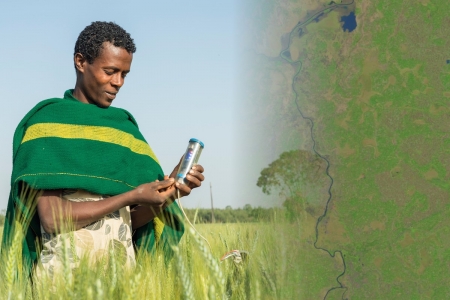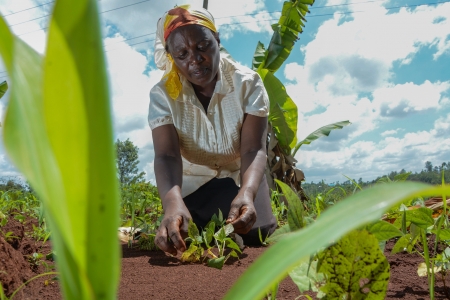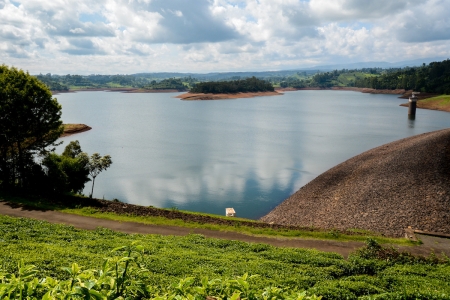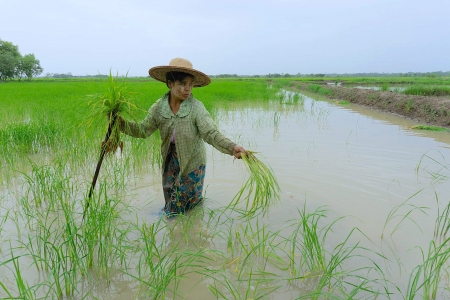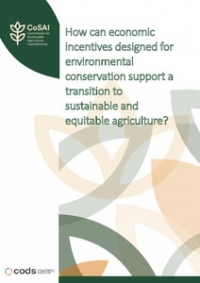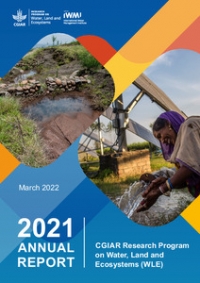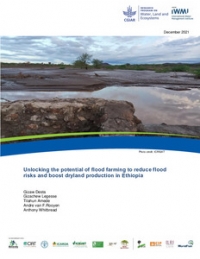Ethiopia's development trajectory is placing water resources under extraordinary pressure. To have any chance of continuing on this trajectory – not to mention achieving Sustainable Development Goal 6, water and sanitation for all – the country needs new approaches to managing water use and trade-offs. In 2020, the Government took the initiative with a water policy review that will form the foundation for far-reaching reform, and they wrote to the CGIAR Research Program on Water, Land and Ecosystems (WLE) and International Water Management Institute (IWMI) for help.
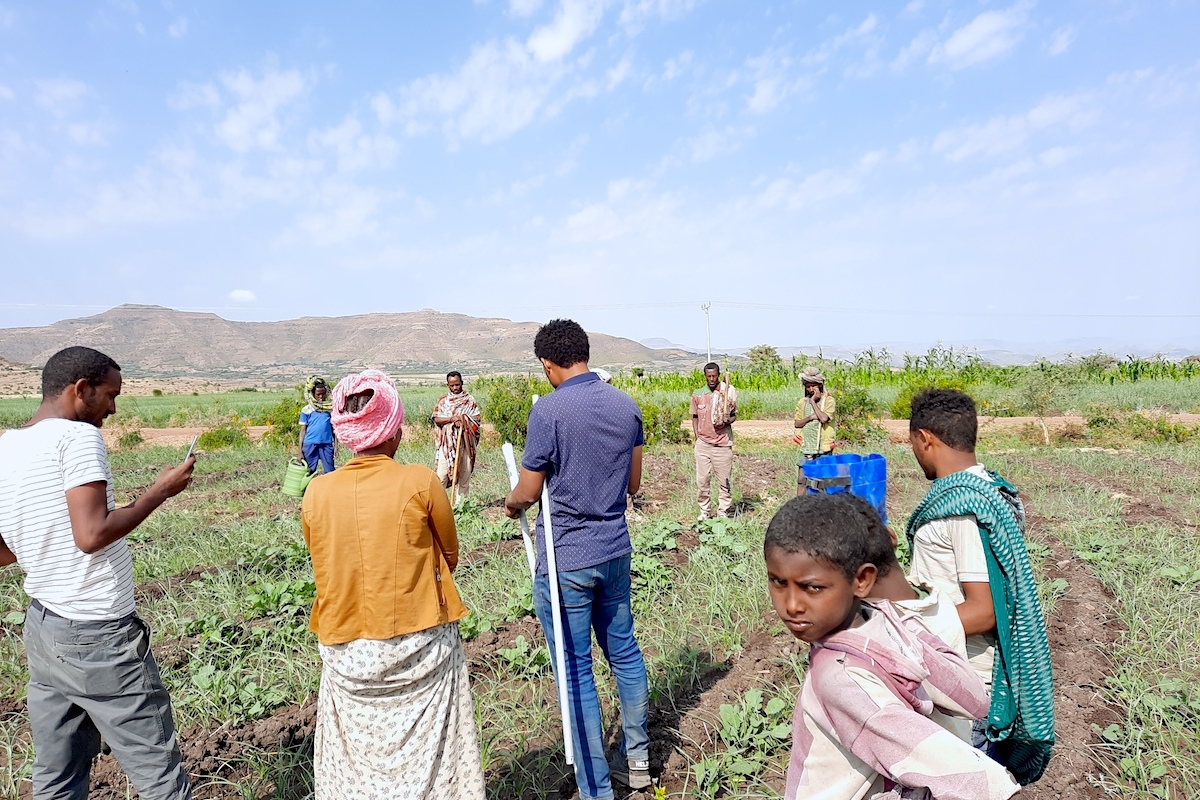
Water flow has many purposes in Ethiopia. A vivid demonstration is seen in the Rift Valley, where all major lakes are interconnected. When Lake Ziway rises, excess water flows through the Bulbula River to Lake Abjata, regulating its level and salt concentration in turn. Industry and irrigation are emerging upstream, however, and international companies have surrounded Lake Ziway with flower farms. This is changing not only Lake Ziway, but also, by reducing onward flows, Lake Abjata.
The government has experience managing natural resources, yet water conservation is not systematically financed and there is little recovery of infrastructural investments. The Ministry of Agriculture and Ministry of Water, Irrigation and Electricity acknowledged that rapid policy reform is needed, and invited WLE and IWMI to participate.
This became an opportunity to bring new ideas to the table – whether based on recent research or deep knowledge accumulated over time. One central concept is the recognition of multiple water values for multiple users. This flowed from researchers' evidence of deteriorating water values in the Rift Valley, gathered during a UK Global Challenge Research Fund project. Another idea came out of a WLE/IWMI project on a financing mechanism for participatory natural resource management in the Bale Eco-region: this showed the need to include payment for economic services in new water policies.
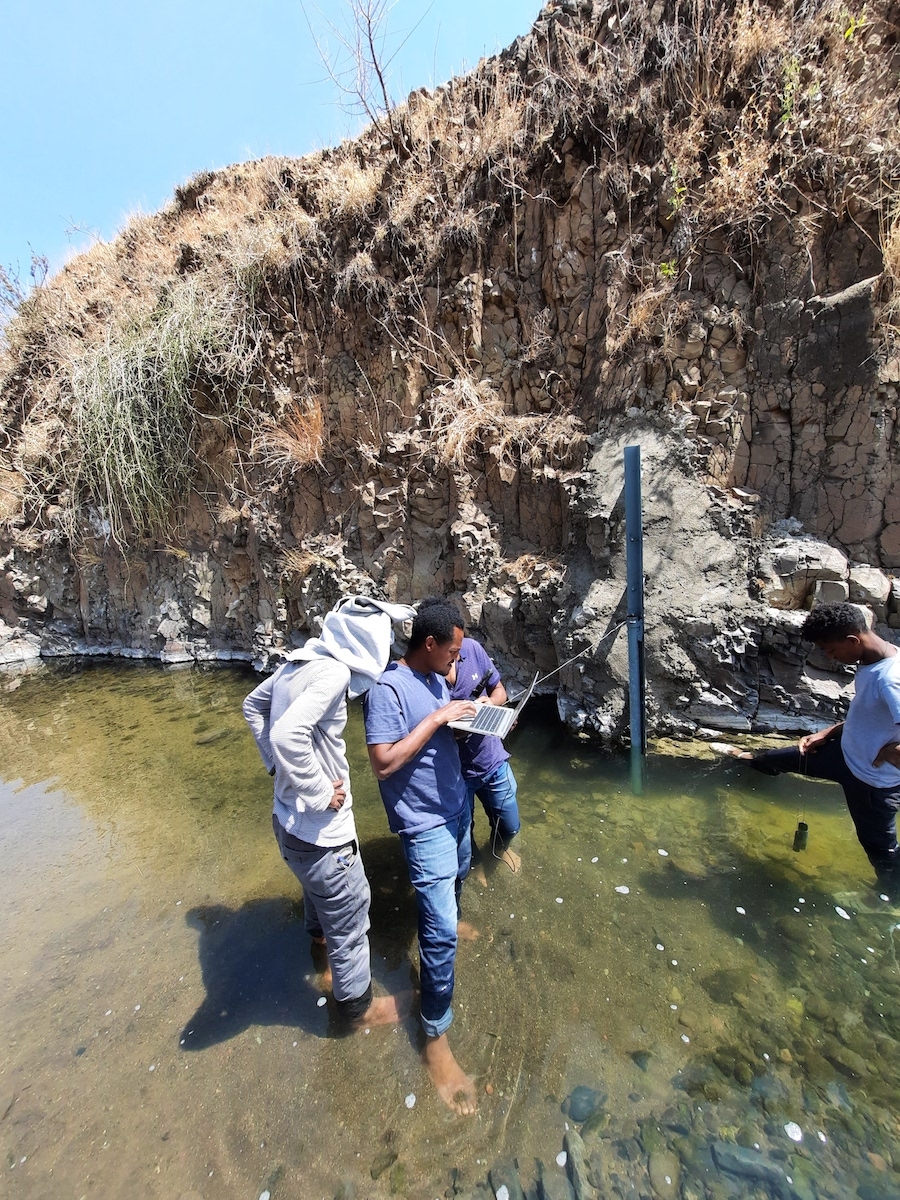
Other WLE/IWMI research has documented poor performance in irrigation schemes, and this has informed stakeholder training and guidelines for online irrigation performance benchmarking to promote sustainable management. Although full cost recovery remains uncertain, farmers express willingness to pay for scheme operation and maintenance.
Following the invitation from the government, WLE/IWMI participated in virtual meetings with the policy reform team to share all of these policy ideas. The ideas have been accepted and included in a new draft policy document that will be central to the coming reform.


